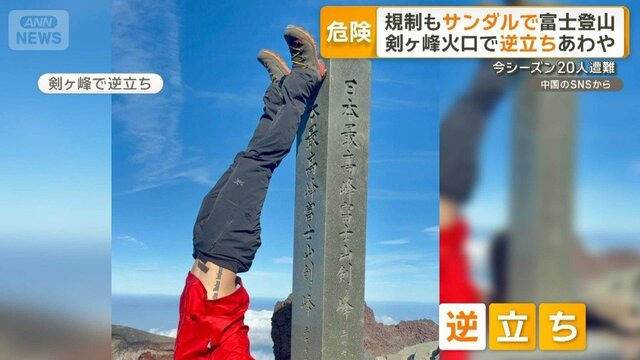Echoing a recurring concern, another instance of acrobatic bravado at the summit of Mount Fuji has been reported. An unidentified man was spotted doing a handstand at the crater of Japan's tallest mountain. This instance continues a worrying trend, usually during peak climbing season in July and August, with individuals performing stunts that not only potentially threaten their safety but also disrupt the precious atmosphere that the sacred site represents for many locals and foreign climbers alike.
Mount Fuji is not just a popular climbing destination, but it's also a sacred site with deep cultural and religious significance. Such behavior is seen as disrespectful and has stirred debates about increased regulation on behavior atop the mountain. Public behavior, especially in places of natural or cultural significance, is a matter of high social interest in Japan, and actions such as these are deemed to lack societal respect.
In the US or EU, similar disrespectful behaviors in sacred or historical sites are generally frowned upon but may not always stir nationwide debates. While it's expected everyone will display respect at culturally significant sites, the enforcement and societal reaction might vary depending on the specific context and location.

